AllBicycle AccidentBrain InjuriesCar AccidentConstruction Site AccidentDog BiteGeneralMass TortMedical MalpracticeMotorcycle AccidentMTBA Bus AccidentNursing Home AbusePedestrian AccidentPersonal InjuryPremises LiabilityScooter AccidentSlip and Fall AccidentSocial Security DisabilityTruck AccidentWorkers' Compensation
-
What Distance Should You Leave Between Your Vehicle and a Motorcycle?

-
What Percent of Motorcycle Accidents Result in Injury or Death?

-
How Old Do You Have to Be to Get a Motorcycle License in Boston?

-
What’s the Average Settlement for a Car Accident Back and Neck Injury?

-
Do You Have to Wear a Helmet on a Motorcycle?

-
Does Your Insurance Go Up After a Claim That Is Not Your Fault?

-
Can I Sue for Slipping and Falling in a Store?

-
What Does a Truck Accident Lawyer Do?

-
How to File a Claim for a Pedestrian Accident?

-
Does Health Insurance Cover Motorcycle Accident Injuries?

-
What to Do After a Motorcycle Accident?

-
What Are the Most Common Pedestrian Accident Injuries?

-
What Is the Average Payout for a Pedestrian Hit by a Car?

-
What to Do After a Minor Car Accident?

-
What are the Most Common Face Injuries from Car Accidents?

-
How Long Do You Have to Amend a Police Report?

-
What Is the Difference Between a Concussion and a Traumatic Brain Injury?

-
How Do I Find the Best Personal Injury Lawyer?

-
What Does a Personal Injury Lawyer Do?

-
What are the Best Questions to Ask a Personal Injury Lawyer?

-
Can You Sue an Insurance Company for Delays?

-
Who Is Liable for a Construction Site Accident?

-
Who Is Liable in a Slip and Fall Accident?

-
Can You Sue After Slipping and Falling on Ice?

-
Can You Sue the City for Falling on a Sidewalk?

-
What to Do After a Slip and Fall Accident?

-
How Long Does it Take to Settle a Pedestrian Accident?

-
What Is the Average Settlement for a Pedestrian Hit by a Car?

-
Who Is at Fault in a Pedestrian Accident in Massachusetts?

-
What Is a Traumatic Brain Injury?

-
Can You Sue Uber for an Accident?

-
Who Is Liable in an Uber or Lyft Accident?

-
What Evidence Do I Need to Prove an Uber or Lyft Car Accident?

-
What Happens if You Get in an Accident While Driving for Uber?

-
What Happens if You Are in an Accident in an Uber?

-
Does Workers’ Compensation Affect Unemployment in Massachusetts?

-
Who Is at Fault in a Rear-End Collision in Massachusetts?
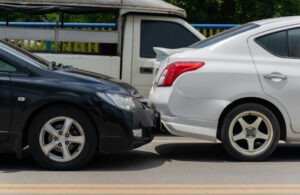
-
How to Access Traffic Camera Footage in Massachusetts?

-
How Are Hit and Run Accidents Handled in Massachusetts?

-
Is Massachusetts a No-Fault State for Car Accidents?

-
How Long It Takes to Settle a Workers’ Comp Case in MA

-
Can I Sue My Insurance Company for Denying My Claim?

-
How Much does a Car Accident Lawyer Cost?

-
When Is It Too Late to Get a Lawyer for a Car Accident?

-
Worst Nursing Homes in Natick

-
What Is the 90-Day Rule in Workers’ Compensation?

-
What is Personal Injury Protection (PIP) Coverage in Massachusetts?

-
Is Lane Splitting Legal in Massachusetts?

-
What Should I Do With a Totaled Car in Massachusetts?

-
Massachusetts Seat Belt Law

-
What Is the Most Common Motorcycle Accident Injury?

-
What Evidence do I Need to Sue a Nursing Home?

-
What Measures Can Bicyclists Take to Stay Safe on Boston’s Streets?

-
Where Do Most Massachusetts Motorcycle Accidents Happen?

-
What’s the Difference Between Workers’ Compensation and Disability?

-
What Should You Do After a Car Accident in Massachusetts?

-
What Damages Can I Collect for a Motorcycle Accident?

-
Do I Have to Go to Court for a Motorcycle Accident?

-
What Damages Can I Recover in a Nursing Abuse Case?

-
Most Common Injuries Sustained in Nursing Homes

-
How Long does a Motorcycle Accident Lawsuit Take to Settle?

-
Do I Have to Go to Court for My Nursing Home Abuse Case?

-
Massachusetts Statute of Limitations for Nursing Home Lawsuits

-
Can I Work While on Workers’ Compensation?

-
What to Do if Your Workers Compensation Claim is Denied

-
What Types of Injuries Are Covered by Workers’ Compensation?

-
Who Qualifies for Workers Compensation in Massachusetts?

-
Can I Sue After a Car Accident If I Was Not Hurt?

-
How do I Get a Car Accident Report in Massachusetts?
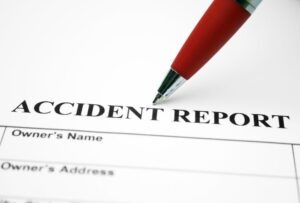
-
What Are the Advantages of Hiring a Personal Injury Lawyer?

-
Do You Have to Go to Court for a Car Accident in Massachusetts?

-
What Resources Are Available When Evaluating Nursing Homes?

-
What if I’m Partially At Fault for a Car Accident in Boston?

-
When Should I Call a Car Accident Lawyer?

-
How Is Fault Determined in a Car Accident Claim?

-
Common Examples of Workers’ Compensation Claims

-
Are Workers’ Compensation Settlements Taxable in Massachusetts?

-
How to File for Workers’ Compensation in Massachusetts

-
Who Can Sue for Nursing Home Abuse?

-
Nursing Home Regulations in Massachusetts

-
Do I Need to Call the Police for a Minor Car Accident?

-
How Long do I Have to Sue for a Slip and Fall Accident in Boston?

-
Are Car Accident Settlements Public Record in Massachusetts?

-
How do I Get a Car Accident Report in Boston?
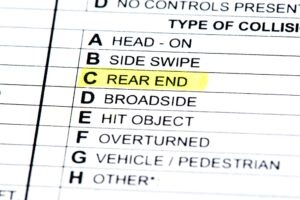
-
Can You Sue for a Car Accident Without Visiting a Doctor?

-
The Most Common Injuries Caused by Slip and Fall Accidents

-
When Is a Property Owner Responsible for a Slip and Fall Injury?

-
What Damages Can I Recover in a Slip and Fall Case?

-
Can Inadequate Lighting Cause a Slip and Fall Accident?

-
Do Slip and Fall Cases Go to Trial?

-
What Are Some Common Causes of Slip and Fall Accidents?

-
Settlement Negotiations in Premises Liability Cases

-
Could Refusing Medical Treatment Hurt Your Injury Claim?

-
What Evidence Is Needed in a Premises Liability Case?

-
Can I Sue a Nursing Home for Negligence?

-
How to Report Nursing Home Abuse in Massachusetts

-
What Is The Most Common Injury In A Scooter Accident?

-
How Common Are Scooter Accidents In Massachusetts?

-
Do I Get A Ticket If I Crash My Motorcycle And Injure Myself?

-
Can I Get Compensation For Brain Injuries?

-
What To Do If I Got Injured By A Defective Product?

-
Cold Snaps And What It Can Mean On The Road

-
Signs I Need To Call A Dog Bite Lawyer
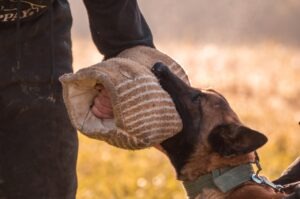
-
When Do I Need A Lawyer After A Construction Site Accident?

-
How To Find A Construction Accident Lawyer Near Me?

-
Are Construction Site Accident Lawsuits Worth It?

-
What Should I Do If My Boss Tells Me To Keep Working After A Construction Accident?

-
Are Construction Workers Safe in Boston?

-
How Long Do I Have to File a Lawsuit After a Car Accident?

-
How Long After a Car Accident Can Symptoms Appear?

-
How Is Pain and Suffering Calculated in a Car Accident Case?

-
How Is Fault Determined in a Multi-Vehicle Car Accident?

-
How Do I Find a Good Car Accident Lawyer?

-
Can You Sue Someone For a Minor Car Accident?

-
Can You Sue for a Rear-End Collision?

-
Can You Sue Someone For The Time Wasted In Boston Traffic?

-
Can I Sue If I Slipped On Snow On Neighbours Sidewalk?

-
Who Is At Fault For Slip And Fall Injuries Due To Unshovelled Snow?

-
If I Have An Accident In Another State, Do I Need A Car Crash Lawyer Near Me Or From Home State?

-
How Do I Find A Car Crash Lawyer Near Me?

-
Do I Need A Lawyer If A MBTA Vehicle Damages My Car?

-
Who Can Be Sued In Accidents Involving The MBTA?

-
How Do I File An Incident Report Against The MBTA?

-
Do I Need A Construction Accident Lawyer?

-
What Damages Are Available In Construction Injury Cases?

-
What Should I Do After Being Injured On A Construction Site?

-
What Is The Biggest Killer In The Construction Industry?

-
What Does A Slip And Fall Lawyer Do?

-
Should You Hire A Lawyer For A Slip And Fall Injury Case?

-
What Happens When You Trip And Fall?

-
What Happens If A Police Dog Attacks You?

-
What Specific Criminal Charges Can Be Made Against A Dog Owner?

-
What Happens If A Trained Dog Attacks Someone?

-
Should Parents Get A Dog Bite Lawyer For Their Injured Child?

-
Can I Sue If A Dog Attacks Me?

-
Do Dog Bite Cases Go To Court?

-
Should You Report A Dog Bite To The Police?

-
How Long Does It Take To Get Money From A Dog Bite?

-
What Kind Of Lawyer Do I Need For A Dog Bite in Massachusetts?
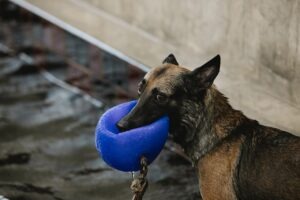
-
How To Find A Slip And Fall Lawyer Near Me?

-
In What Slip And Fall Cases Can I Hire A Lawyer?

-
How Is Pain And Suffering Calculated In A Slip And Fall Case?
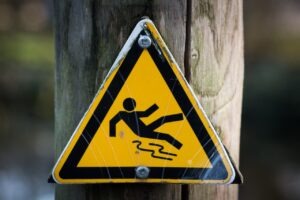
-
Is It Worth Getting A Dog Bite Lawyer?

-
Do I Need A Lawyer If I Received Minor Injuries From A Small Dog?
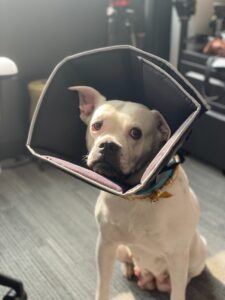
-
Another Dog Attacked My Dog. Who Is Responsible For The Vet Bills?

-
Who Can I Sue For My Dog Bite Injuries?

-
What Should I Do If I Was Bitten By A Dog?

-
Who Is At Fault In A Dog Attack?

-
Do All Dog Attacks Need A Lawyer?

-
Do I Need A Lawyer If Someone’s Dog Bit Me?
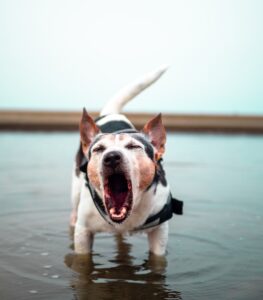
-
How Long Do You Have To File A Dog Bite Case In Massachusetts?

-
What Damages Can I Get if I Was Bitten By a Dog?

-
How Do You Establish Liability In A Dog Attack Case?

-
What Should I do After An Auto Accident in Boston?

-
Who Is Eligible For Camp Lejeune Water Contamination?

-
How Much Is The Settlement For Camp Lejeune Water Contamination?

-
What Are The Symptoms Of The Camp Lejeune Water Contamination?

-
How Do I File A Claim For Camp Lejeune Water Contamination?

-
Is There A Class Action Lawsuit Against Camp Lejeune Water Contamination?

-
What Is The Difference Between Premises Liability And General Liability?

-
What Is A Premises Liability Cause of Action?

-
Is Premises Liability The Same As Negligence?

-
Can You Get Paid For A Dog Bite?

-
What Happens If My Dog Bites Someone In Massachusetts?

-
What Is The Typical Settlement For A Dog Bite?

-
When Do You Need a Car Injury Lawyer?

-
How Do Police Investigate A Car Crash?

-
What Happens To The Human Body In A Car Crash?

-
What is an Accident Lawyer?

-
What Are the Odds of Winning a Personal Injury Lawsuit?

-
Why Employers Should Help Workers Protect Their Hearing

-
Who Actually Pays the Cost in a Personal Injury Claim?

-
What Kinds of Damages Can You Sue for in a Personal Injury Lawsuit?

-
How Do You Respond to a Low Settlement Offer After an Accident?

-
Truck Underride Accidents Are Deadly—And Preventable

-
Proposed Massachusetts Legislation Could Make Roads Safer

-
What if a Crash Report Is Incorrect?

-
6 Questions to Ask Your Doctor After a Car Accident

-
What Do I Do if I Get Hit by Someone Who Drives Off?

-
Workplace Eye Injuries Are Common—Here’s How to Prevent Them

-
What If My Employer Doesn’t Carry Boston Workers’ Compensation Insurance?

-
Who Has the Right of Way at a Four-Way Stop in Massachusetts?

-
Why Do I Need a Lawyer If I Was Injured at Work?

-
How Long Should I Rest After a Boston Car Accident?

-
Does It Matter Where I Go for Treatment After an Accident?

-
Why Experience Matters in the Trucking Industry

-
How Can You Prove a Boston Brain Injury?

-
Can I Get Compensation for PTSD After a Car Accident?

-
Can You Sue Another Driver If You’re Uninsured?

-
Why Falls Continue to Be a Problem for Boston Construction Workers

-
What Workers Should Know About Employee Misclassification in Boston Massachusetts

-
What Type of Lawyer Do I Need? A Guide for First Timers

-
What to Look for in a Nursing Home

-
How Do Wrongful Death Claims Differ from Injury Claims in Boston Massachusetts

-
What Is a Third-Party Liability Claim After a Workplace Injury?

-
What You Need to Know About Pain and Suffering Damages in Boston Massachusetts

-
Who Are You Really Suing in a Personal Injury Lawsuit?

-
Can I Sue If I Was Hit by a Car While Jaywalking in Massachusetts?

-
Who Is Liable If I Get Injured at a Beach in Massachusetts?

-
Does Vaping Increase the Risk of COVID-19?

-
Brain Injury Facts & Information

-
Marijuana is Legal in Massachusetts; Driving Stoned Isn’t

-
How Long Does it Take to Resolve a Personal Injury Case?

-
What Is My Case Worth?

-
Why Do I Need a Boston Car Accident Lawyer?

-
What to Do When Your Car Is Recalled

-
Motor Vehicle Safety: Children

-
Boston Dog Bite Lawyers Discuss Increase In Number of Attacks

-
Boston Construction Accident Lawyers Discuss Equipment Hazards

-
What Qualifies An Individual For Boston Social Security Disability Benefits?

-
Should I See a Doctor After a Car Accident Even If I Am Not Hurt?

-
What Happens if the At-Fault Party Doesn’t Have Car Insurance?

-
Can You Represent Yourself in a Car Accident Case?

-
Do You Always Get a Settlement From a Car Accident?

-
Do You Have to Go to Court For a Car Accident?

-
What Can You Do To Protect Your Rights After a Car Accident in Massachusetts?

-
What Damages Can I Collect for a Car Accident?

-
What Does a Car Accident Lawyer Do?

-
What Happens If I Am at Fault for a Car Accident?

-
Boston Tractor Trailer Accident Lawyer

-
Can I Sue if I Slip and Fall in a Business Location?

-
Is It Hard To Sue for a Slip-and-Fall Accident?

-
How Long Does it Usually Take To Settle a Slip-and-Fall Case?

-
How Do You Prove Negligence in a Slip and Fall?

-
What Happens in a Slip-and-Fall Lawsuit?

-
Massachusetts Electric Scooter Accident Lawyer

-
Will My Truck Accident Lawyer Deal With the Insurance Companies for Me?

-
Who Can Be Sued in a Truck Accident Case?

-
Who Is Responsible for an Accident Caused by a Truck Oil Leak?

-
Who Is At Fault for a Truck Tire Blowout Accident?

-
Is a Truck Tire Blowout an At-Fault Accident?

-
Is a Truck Responsible for a Car Wreck Caused by Something That Falls Off the Moving Truck?

-
Who Is Responsible When a Truck’s Load Falls?

-
How Is Fault in a Truck Accident Determined?

-
Are Truck Drivers Liable for Accidents?

-
What Should I Do at the Scene of a Truck Accident?

-
What Should I Do in the Days Following a Truck Accident?

-
What To Do After a Truck Accident

-
When Should You Get a Lawyer for a Truck Accident?

-
What Are Most Motorcycle Accidents Caused By?

-
Can I Sue Family Members over Personal Injuries?

-
How Much of the Settlement Will I Get after a Personal Injury Lawsuit?
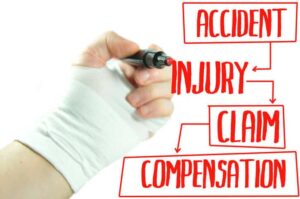
-
What To Look For When Searching for a Personal Injury Law Firm?

-
If I Trip on Uneven Sidewalk Do I Need a Personal Injury Lawyer?

-
When Is A Car Accident A Personal Injury Claim?

-
Personal Injury Vs. Bodily Injury

-
How to Prove an Injury is from a Car Accident

-
What Is Personal Injury Compensation?

-
What Does Personal Injury Law Involve?

-
What Is A Major Personal Injury?

-
What Kinds of “Injuries” Does Personal Injury Law Include?

-
Ten Most Common Types of Personal Injuries

-
Personal Injury Claims: When You Need a Lawyer

-
Medical Malpractice FAQ







